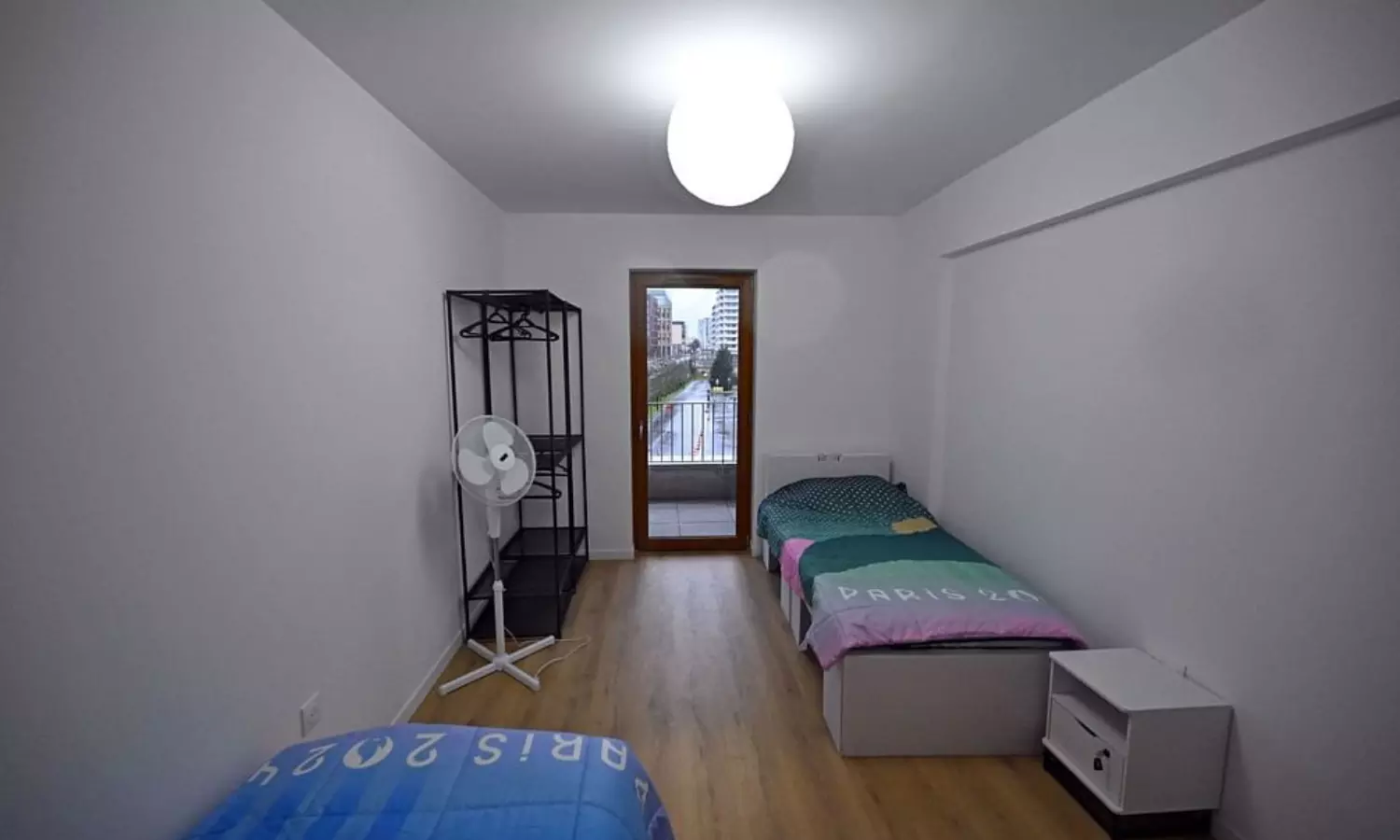Olympics
Will cardboard beds in Paris 2024 affect athlete performance?
While the intention behind the cardboard beds and other eco-friendly measures are commendable, the execution could have consequences.

Athletes room (Photo credit: Getty)
As the Paris 2024 Olympics kicks off, the spotlight has once again turned to the athletes' beds, which are notably made of cardboard.
These beds, which are eco-friendly and can be transported and recycled easily, were introduced to promote sustainability.
Questions about beds in the games village aren't new.
During the Tokyo Olympics, American cross-country skier Paul Chelimo speculated that the cardboard beds were intended to discourage intimacy among athletes.
This theory was quickly debunked, and the real reason for their design was revealed to be related to COVID-19 control measures.
Despite their unconventional construction, the beds are designed to be surprisingly sturdy, capable of supporting up to 250 kilograms and featuring customizable modular mattresses to suit different athletes' needs.
Fishing net mattresses?
In Paris, a new issue has emerged: the comfort of the mattresses.
Videos from the Olympic Village show that the mattresses, made of recycled fishing nets, are reportedly hard and uncomfortable.
Some teams have provided their athletes with mattress toppers, but complaints of back pain and poor sleep persist. Additionally, the lack of air conditioning in the village, part of an effort to make these the 'greenest' Olympics ever, has added to their discomfort.
The question now is whether these eco-friendly but potentially uncomfortable sleeping arrangements will impact athlete performance.
Quality sleep is crucial for optimal athletic performance, aiding in recovery, mental sharpness, and overall health.
Poor sleep, on the other hand, can lead to increased injury risk, slower recovery times, and diminished cognitive and physical performance.
The importance of sleep for athletes
Athletes require high-quality sleep to perform at their peak.
Research shows that sleep is essential for several reasons:
1. Physical Recovery: During sleep, the body repairs muscles, synthesizes proteins, and releases growth hormones. These processes are critical for recovery, especially after intense training sessions and competitions.
2. Cognitive Function: Adequate sleep improves cognitive functions such as memory, learning, and decision-making. These aspects are crucial for athletes who need to strategize, react quickly, and perform complex tasks under pressure.
3. Injury Prevention: Studies have shown that sleep deprivation increases the risk of injuries. Athletes who do not get enough sleep are more likely to suffer from overuse injuries, which can hinder their performance and career longevity.
4. Immune Function: Sleep supports the immune system, helping athletes stay healthy and avoid illnesses that could disrupt their training and competition schedules.
Impact of sleep deprivation
The consequences of poor sleep are well-documented:
1. Reduced Performance: Athletes with insufficient sleep have slower reaction times, reduced accuracy, and decreased endurance. This can significantly impact their ability to compete at the highest level.
2. Impaired Judgment: Lack of sleep impairs cognitive functions, leading to poor decision-making and increased likelihood of errors during competitions.
3. Mood and Motivation: Sleep deprivation can lead to mood swings, irritability, and decreased motivation. Maintaining a positive mental state is crucial for athletes facing the pressures of the Olympics.
4. Hormonal Imbalances: Poor sleep disrupts the balance of hormones that regulate hunger and stress. This can lead to weight gain, increased stress levels, and overall poor health.
The role of sleep environment
A comfortable and conducive sleep environment is essential for quality sleep. The issues reported with the cardboard beds at the Paris Olympics highlight a significant concern:
1. Mattress Quality: The hardness of the mattresses made from recycled fishing nets has led to complaints of back pain. Athletes need mattresses that provide adequate support and comfort to prevent musculoskeletal issues.
2. Temperature Control: The lack of air-conditioning in the Olympic Village, intended to promote sustainability, could lead to sleep disruptions due to heat and discomfort. Studies have shown that cooler room temperatures are more conducive to sleep.
Balancing sustainability and comfort
While the intention behind the cardboard beds and other eco-friendly measures is commendable, the execution may need re-evaluation.
The comfort and well-being of athletes should remain a priority, as these factors directly influence their performance.
If the current issues persist, what were meant to be innovative "green" solutions could inadvertently become obstacles to the athletes' success.
Ensuring they have a comfortable and restful sleep environment is a fundamental part of their preparation and success.
The organizers must address these concerns to avoid turning what were meant to be sustainable solutions into 'anti-performance' beds.






